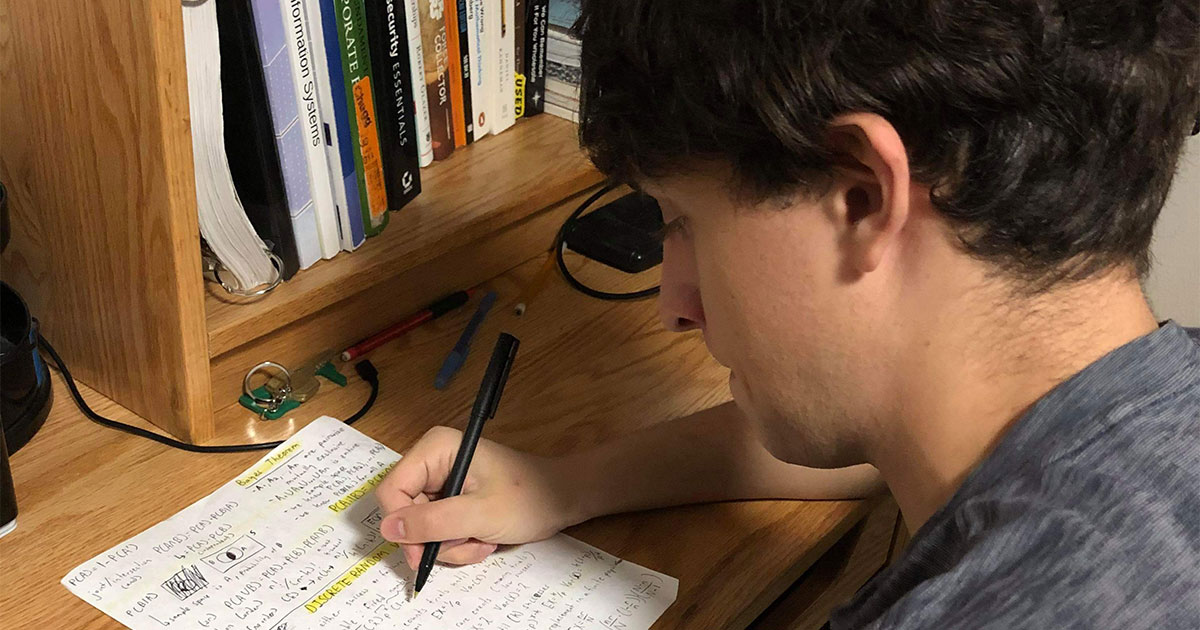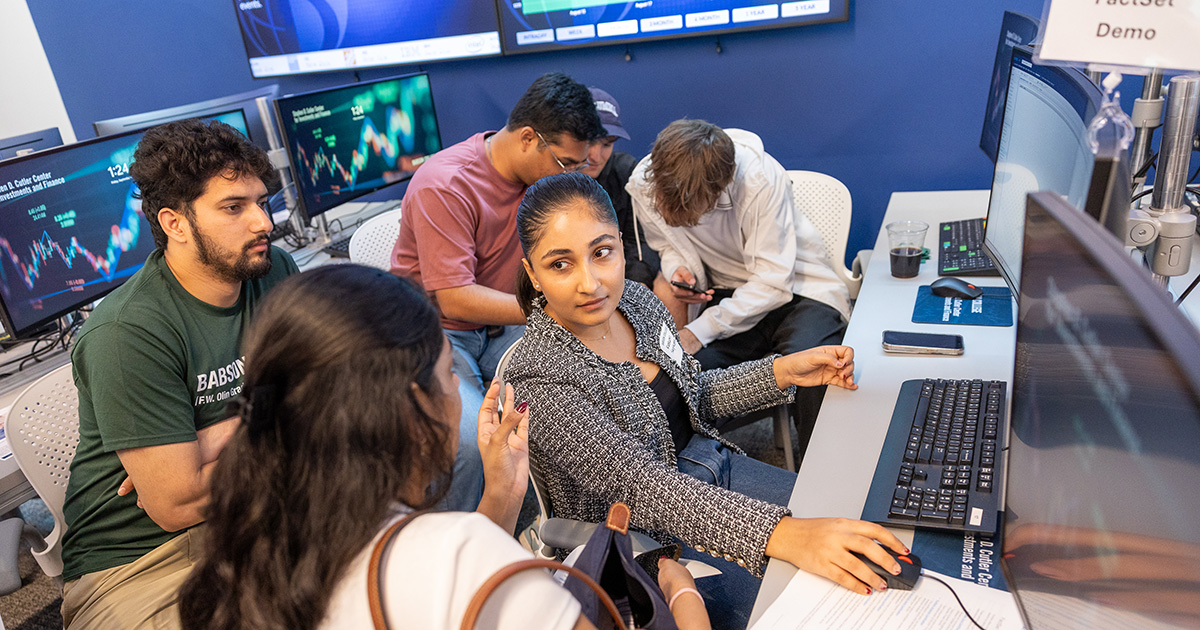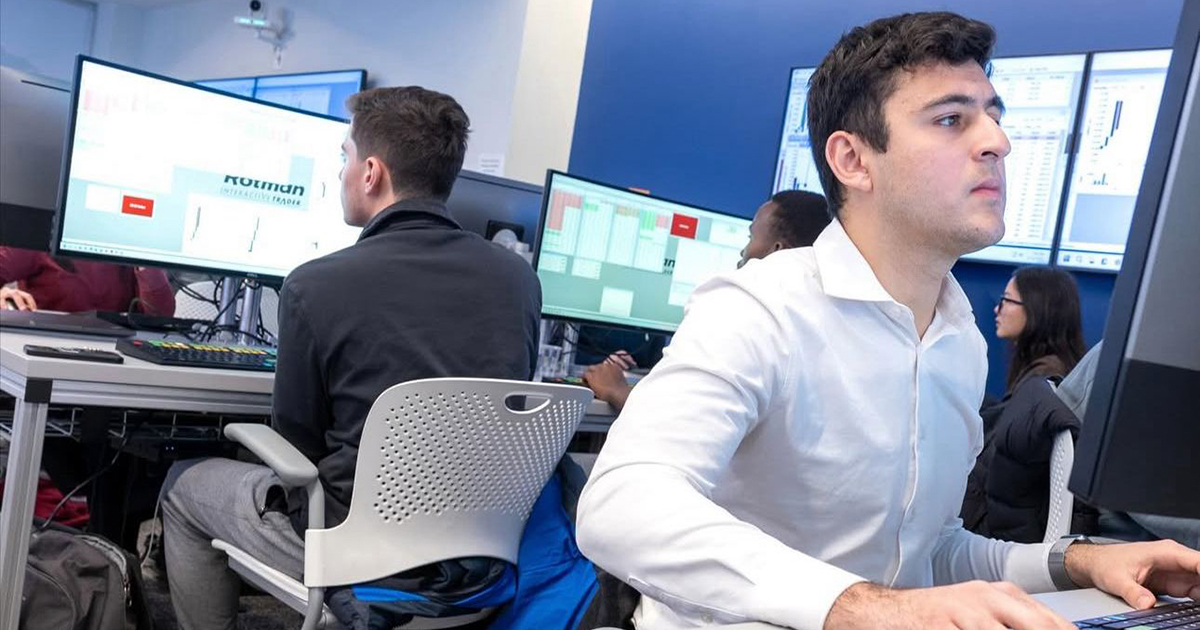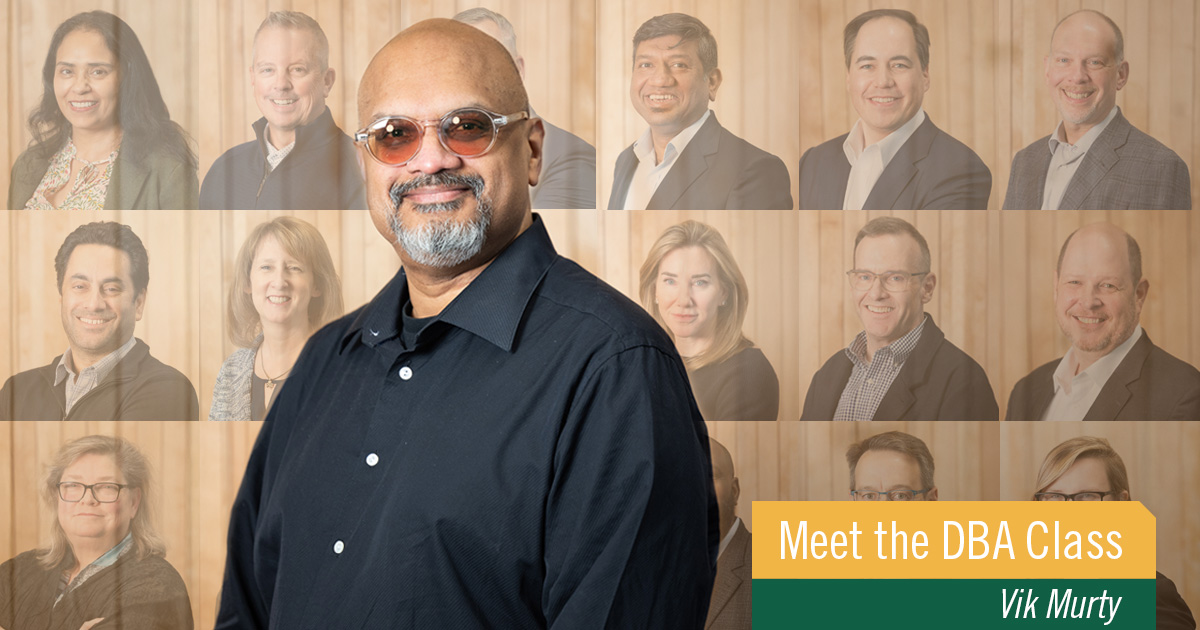Mastering Math for the Modern World

Ever since elementary school, Alex Shafir ’21 has enjoyed studying math. He likes its concreteness and its certainty, of how problems have specific answers and an explicitly defined process for finding them.
In high school, however, he was struck by how math concepts and theories seemed far removed from the real world. He found algebra and calculus interesting, but he was unsure of their usefulness outside of the classroom. “I was never shown how they could be applied practically,” he says.
That changed at Babson. Shafir remembers the first math course, Quantitative Methods for Business Analytics, he took at the College. “It reinvigorated my love for math and taught me that these concepts can be applied to the real world,” he says. “I have since looked forward to every math class I have taken here.” In all, he has taken eight math courses at Babson, with subjects ranging from statistics and probability to financial simulation and cryptology.

Alex Shafir ’21 believes the math courses he has taken at Babson will prepare him for the jobs he wants to pursue after graduation.
Babson obviously is known for entrepreneurship education, but the College’s entrepreneurial leaders in the making take courses in a wide range of subjects, including math. Math courses at Babson have proven popular, and they tend to focus on the practical rather than the abstract, with the goal of better preparing students for the jobs they will land after graduation.
Shafir is one of those students now job hunting. He’s primarily focusing on positions involving actuarial sciences, risk management, and quantitative analysis, all of which require a fair share of math skills. “Developing a foundation at Babson will provide me an advantage to succeeding in these roles,” he says.
Not Typical
Babson’s practical approach to teaching math is not typical. “Traditional math majors at most colleges and universities are preparing people for graduate school in math,” says Rick Cleary, professor of mathematics. “That has been the historical goal of that curriculum.”
Additionally, many colleges place a lot more emphasis on calculus. Students majoring in math at other institutions often are required to take three courses in the subject. “We don’t have much need for it,” says Cleary, also the Robert E. Weissman ’64, H’94, P’87 ’90 and Janet Weissman P’87 ’90 Professor of Business Analytics. “We emphasize statistics and probability for understanding risk. That’s more important for business. Engineers will need calculus a lot more than we do.”
That’s not to say calculus isn’t taught at Babson, but it comes up in courses only when relevant. Cleary also points out, if students need help solving calculus problems on the job, that websites are now available that can do that hard work for them. “Technology has caught up with calculus,” he says.
Popular Courses
While Babson does not offer a traditional math major, it does offer several math-centric concentrations: business analytics, computational and mathematical finance, statistical modeling, and quantitative methods. Beyond the two courses of quantitative methods that all students are required to take, four or five math electives are taught in a typical semester. “They all fill up,” Cleary says. “We have students writing all the time asking for more.”
“Babson may be a school devoted to business, but the next set of entrepreneurial leaders just may be mathematicians.”
Alex Shafir ’21
Part of that popularity is driven by students such as Shafir who simply enjoy math. “They take all the math they can when they are here,” Cleary says. But students also realize how important math skills are on the job market. Just consider, for one thing, how ubiquitous data analytics has become across all industries. “Students recognize the concentrations are very hot tickets in the job market,” Cleary says. “Students are career-oriented. They understand that this is good for them.”
A good place to understand just how robust math classes are at Babson is the annual Math and Science awards. Usually held over Family and Friends Weekend, the awards ceremony honors outstanding performance in Babson’s core courses in math and science. “It makes people aware that there’s this pretty serious vein of math and science in our curriculum at Babson,” Cleary says.
Shafir won a math award his sophomore year and remembers looking around at his many fellow winners. “It was great to see that I was not alone in understanding how math and science can be of use to a multitude of companies and industries,” he says. “It shows that though Babson may be a school devoted to business, the next set of entrepreneurial leaders just may be mathematicians.”
Posted in Community




